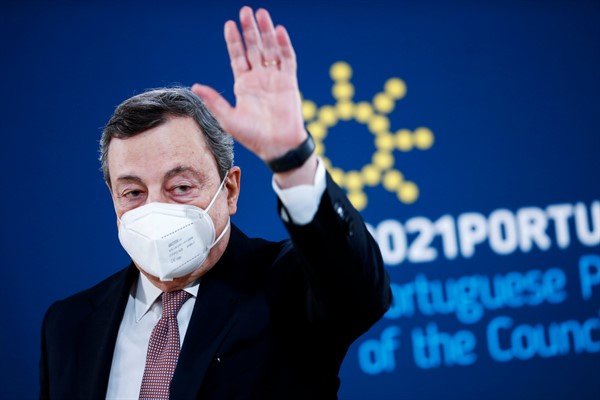During his first six months in office, Italian Prime Minister Mario Draghi has notched several key accomplishments. In June, he secured the European Union’s approval for Italy’s COVID-19 rescue package, totaling 191.5 billion euros, or roughly $224 billion, giving it the largest share of the bloc’s 750-billion-euro pandemic recovery fund. Then, in late July, Draghi’s Cabinet signed off on a contentious overhaul of the Italian justice system, a goal that had eluded many previous governments.
His success might come as a surprise given Italy’s reputation for political tumult. The previous coalition had collapsed at the beginning of the year after months of escalating political tensions, leading President Sergio Mattarella to task Draghi with forming a government in February. An economist who headed the European Central Bank in the aftermath of the global financial crisis, Draghi was widely seen as the last, best hope to bring order to Italy’s unruly politics.
Since his government was officially approved on Feb. 18, Draghi has kept a lid on infighting within his multiparty coalition, mainly through strict control of personnel appointments. In the past, political parties would impose their preferences on prime ministers, demanding certain ministerial portfolios in exchange for their political support. However, while Draghi has taken input from his coalition partners, all of which are fairly represented in the Cabinet, his picks for key ministries have inevitably been his own choices, with direct links to him. Draghi has used this method, which could be summarized as “dialogue without consultation,” for all the major appointments he has made: He listened to the parties, respecting their views and interests, but he decided by himself, often keeping the names secret until they were announced publicly.

